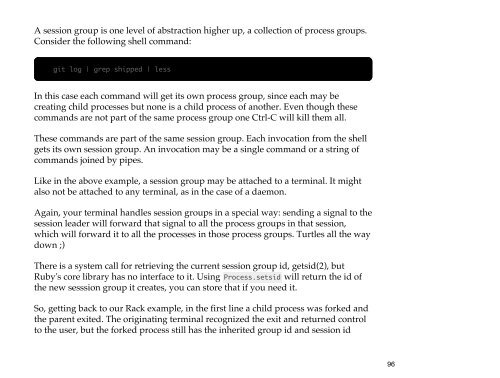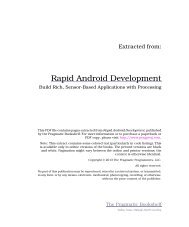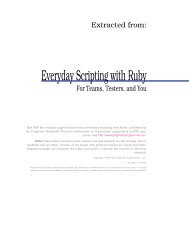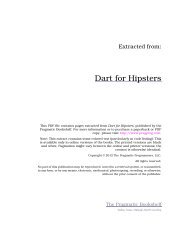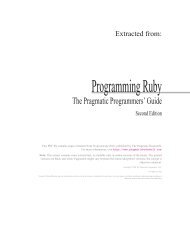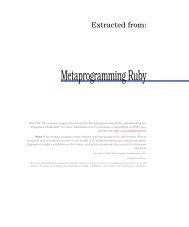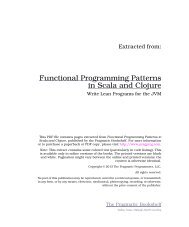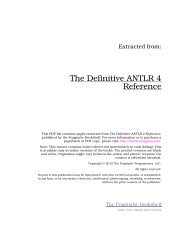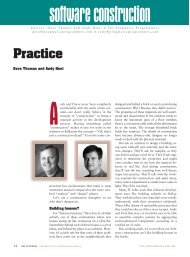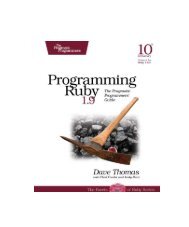Working with Unix Processes
Working with Unix Processes
Working with Unix Processes
- No tags were found...
Create successful ePaper yourself
Turn your PDF publications into a flip-book with our unique Google optimized e-Paper software.
A session group is one level of abstraction higher up, a collection of process groups.Consider the following shell command:git log | grep shipped | lessIn this case each command will get its own process group, since each may becreating child processes but none is a child process of another. Even though thesecommands are not part of the same process group one Ctrl-C will kill them all.These commands are part of the same session group. Each invocation from the shellgets its own session group. An invocation may be a single command or a string ofcommands joined by pipes.Like in the above example, a session group may be attached to a terminal. It mightalso not be attached to any terminal, as in the case of a daemon.Again, your terminal handles session groups in a special way: sending a signal to thesession leader will forward that signal to all the process groups in that session,which will forward it to all the processes in those process groups. Turtles all the waydown ;)There is a system call for retrieving the current session group id, getsid(2), butRuby's core library has no interface to it. Using Process.setsid will return the id ofthe new sesssion group it creates, you can store that if you need it.So, getting back to our Rack example, in the first line a child process was forked andthe parent exited. The originating terminal recognized the exit and returned controlto the user, but the forked process still has the inherited group id and session id96


